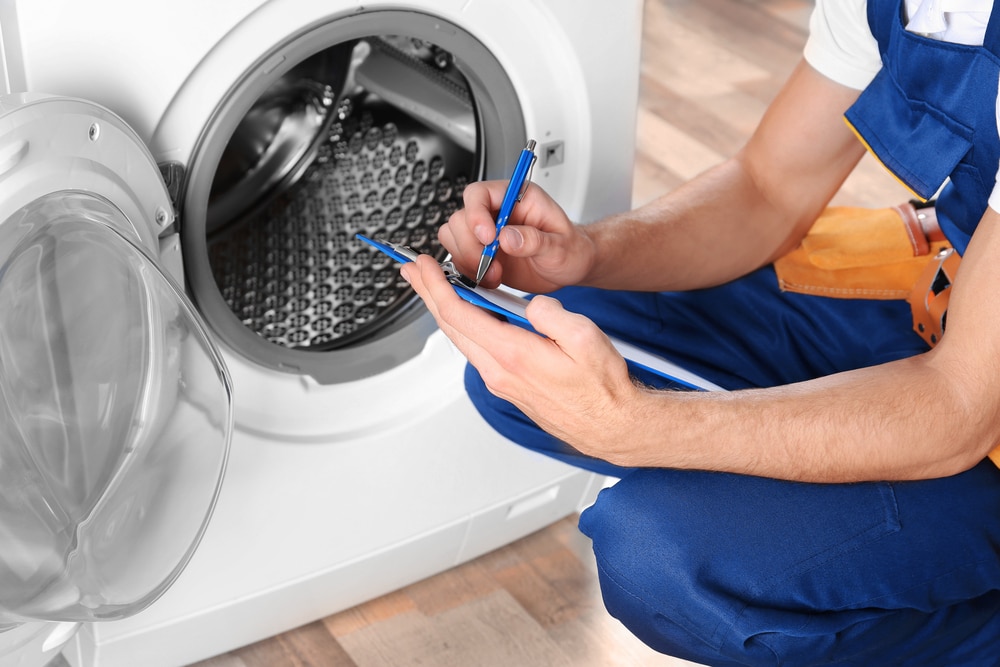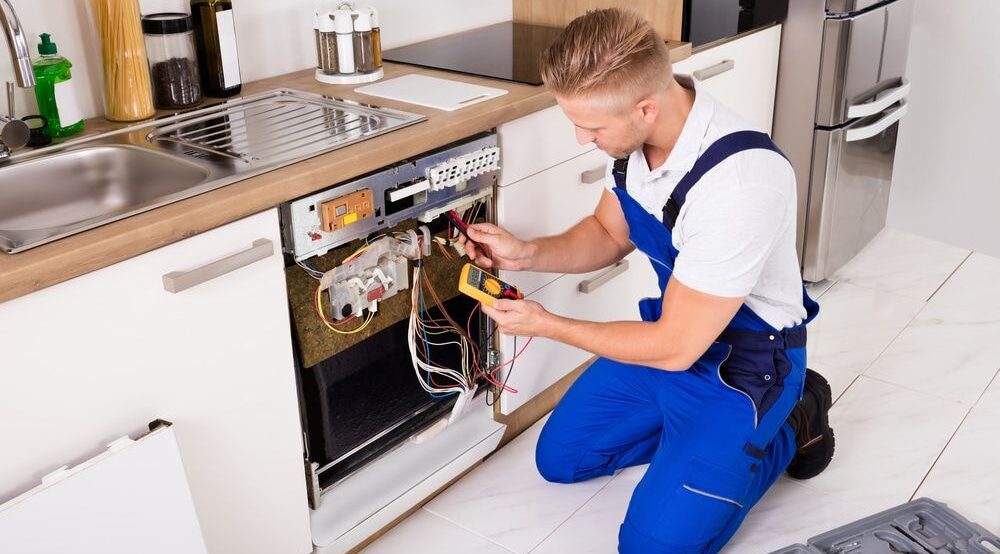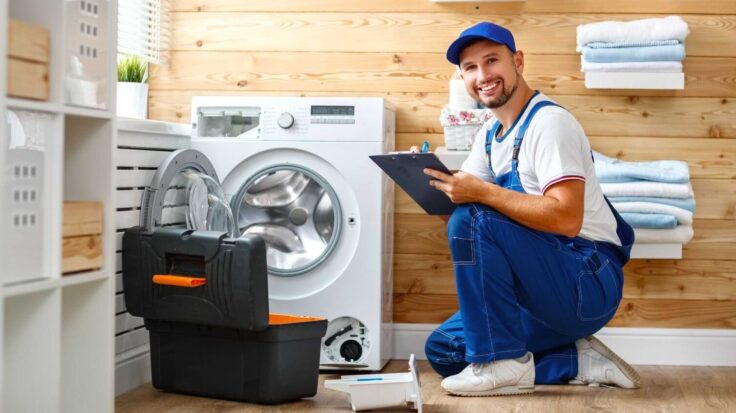You’ve hit the jackpot, as there’s never been better timing to enter the industry. According to The Washington Post, the onset of COVID-19, the fact that Americans are staying home more, and the correlated increase in the use of appliances have caused enough wear and tear to create significant demand in this sector. Geopolitical realities have created a shortage of new appliances that has driven more customers to seek out repair professionals now that their previously underused and now over-stressed appliances are beginning to falter.
Demand is high, and appliance repair technicians are nowhere in sight (or, to put it accurately, way over-booked). That’s where you come in. And while there are certainly a number of ways to go it alone, finding leads locally and independently may require you to spend a fortune on advertising, especially if you’re not yet a seasoned business owner. The alternative, especially when just starting out, is registering to work with home warranty companies looking for appliance repair service providers.
Why work with home warranty companies?
While it’s a bit controversial, partnering with a home warranty company can provide a level of security for your business by supplying consistent leads without having to spend precious dollars on advertising. Your profit margins may be less attractive as these warranty companies don’t always give you the most favorable cut. Some pros even vehemently advocate against working warranty gigs and recommend only completing cash-on-delivery (COD) jobs. But, if you are the new kid on the block and need a steady stream of leads, working with a warranty company might be your best option while you build your client base and referral network.
Remember that while you may earn less on a job obtained through a home warranty company, you are saving on advertising costs because the home warranties bring the customers to you. There may be some risks involved in taking on this kind of work—namely, customers blaming you (sometimes by way of negative reviews) for their claims being denied coverage by the home warranty company. However, the upside is that if your technicians provide great service and leave a customer satisfied, you could see more service requests for out-of-warranty jobs and referrals to other clients.

How do home warranty companies work?
Essentially, homeowners purchase policies or plans from home warranty companies. These policies protect their appliances and systems against a number of occurrences, namely breakdowns and regular wear and tear. They often cover electrical, plumbing, heating, and AC systems and appliances. In the case of appliances, when one breaks, the homeowner contacts his home warranty company and files a claim. The company, in turn, reaches out to a relevant service provider in its network, who then contacts the customer to schedule the repair. The customer pays the service provider a service call fee, and the home warranty company later pays him for labor and parts.

Questions to ask yourself when choosing a home warranty company to work with:
- Do you meet a specific company’s qualifications to become a contractor or service provider? Each home warranty company has slightly different requirements to apply, but most of them require valid trade/contractor licensing, some level of general liability insurance coverage, auto insurance for service vehicles, worker’s compensation coverage, and background checks.
- Does the company have good customer reviews? A company that has good customer reviews may be easier to work with. Does it look like the company is active in responding to customer complaints and concerns? That might be a sign they’re attentive to their contractors as well.
- What kinds of repairs do the policies cover? You should be prepared and basically knowledgeable about this aspect, as cheaper policies cover fewer repairs, and things can get sticky if clients have false expectations.

Top 6 home warranty companies
There are about 83 home warranty companies across the US, but we decided to focus on a few notable ones for you to consider as you kickstart your appliance repair business.
Cinch Home Services (formerly Cross Country Home Services) offers home warranty plans in 48 states, not including Alaska and Hawaii. The company’s automatic payments option could mean that you can get paid more quickly and easily after you complete a job. With Cinch, clients pay a higher service fee than other companies ($100-150 fixed based on their type of plan as opposed to an average of $75). To work with Cinch, you really have to buy into what they call their “Digital First” approach, so don’t be smartphone-shy! The company uses mobile-friendly platforms to allow you to track and update jobs on the go. Another advantage is that you can earn commissions for referrals of new customers to Cinch.
American Home Shield is similarly active nationwide, serving 49 states (not including Alaska). AHS touts fast direct deposit payments within 10 business days as an incentive for contractors who bill online. The company also offers to share customer surveys with contractors, which could be excellent feedback for a professional who is looking to improve and grow. The company is small business-minded, providing account managers to walk you through their job management process and also provide general business guidance. When you team up with AHS, you gain access to digital dispatch management tools through their Contractor Portal, which you can use in tandem with your own Appliance Repair Scheduling Software.
America’s 1st Choice is a good option if you operate out of any state other than Hawaii, California, South Carolina, and Nevada. AFC boasts a live support team to grant fast authorization of jobs. Authorizations are one of the biggest headaches associated with working for home warranty companies, so the quicker the better is the name of the game. Like some other companies, AFC offers digital invoicing and a quick-pay program. Most importantly, AFC allows customers to hire their own service technicians. This could be good news for you if you have existing customers that trust you and decide to go the home warranty route. This can also help you build a loyal customer base that may follow you even for out-of-warranty repairs.
Amazon Home Warranty (no relation to Amazon.com) serves all of the states excluding California, Iowa, Maine, Minnesota, New Mexico, Oklahoma, Utah, and Washington. The company offers its contractors unique access to its Online Vendor Portal for easy dispatching and invoicing. Although the company has had some issues with its BBB rating in the last few years, it has kept up a consistently positive customer review rating. Like AFC, Amazon allows customers to choose their own service provider from a list, so you can develop customer loyalty and distinguish yourself as a sought-after appliance repair specialist.
Fidelity National Home Warranty:
Unlike some of the other companies previously mentioned, Fidelity National Home Warranty only serves a limited number of states, including Arizona, California, Colorado, Florida, Georgia, Idaho, Illinois, Indiana, Kentucky, Missouri, Nevada, Oregon, Texas, Utah, and Washington. The company’s policies are lower cost, and it seems unable to shake off some bad customer service reviews, but Fidelity does not have an age limit on covered appliances (meaning more repairs may be covered, and you could get more jobs). Fidelity also offers online invoicing for service providers and payment within 7-day. The company conducts performance reviews of its service providers to help you maintain good status on their vendor list.
Home Warranty of America:
Home Warranty of America is active in all 50 states. HWA provides a personal account manager for each service provider and a flexible workflow that takes into account vacation days. The company boasts fast claim approvals across the board and features a VIP track offering expedited approvals and payments via direct deposit. In addition, HWA offers online claim authorizations for qualified vendors and higher authorization limits for individual contractors, so you can avoid time spent on the phone.

A word of caution about warranty work
Although home warranty companies can be an excellent lead source for fledgling appliance repair businesses, industry experts warn against leaning on these as a primary or only source of new business. Working with warranty companies can be tricky because of the complicated nature of the type of insurance they offer. In certain situations, you could complete a repair for a customer who is then denied coverage by the home warranty company. This may result in a bad review for your company when the customer gets upset about the claim denial. And although a bad review is nothing you can’t handle, it can still impact your non-home warranty business, especially when taken out of context. Therefore, it’s important to set a high standard of service that will follow you as you build your book of business, whether through home warranty companies or on your own.
When you are ready to go solo and prepared to make an investment in advertising, make sure you’re using appliance repair scheduling software with ad tracking capabilities, so you can truly optimize your ad dollars. This way, whether you choose to work only for yourself or mix up your workflow with warranty jobs, you’ll know you’re spending on advertising effectively.









